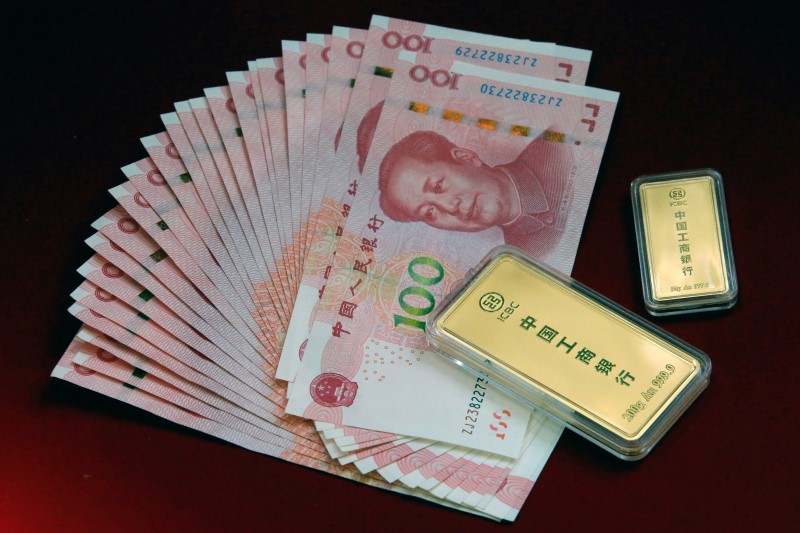SHANGHAI (Reuters) - The People's Bank of China (PBOC) said that foreign central banks investing in the domestic interbank market will be able to freely remit funds without regulatory approval, in a further step to open up its debt markets.
China announced last year it would allow foreign financial institutions to invest in its massive interbank market, home to its primary bond and foreign exchanges, without quota restrictions.
The details, in a set of documents published on the central bank's website on Thursday, come as China tries to attract more foreign capital into its domestic bond market. Beijing seeks both to boost domestic liquidity and restore confidence in the yuan - key to increasing its international usage after it was admitted to the International Monetary Fund's (IMF) reserve currency basket in late 2015.
The rules on Thursday said they applied to central banks and "similar institutions," without further specification as to whether institutions such as pension funds or insurers would be included.
While some analysts have estimated that liberalisation may lead foreigners to pour as much as $600 billion into China's interbank market, some argue that lack of clarity on taxation, concerns about a flood of upcoming issuances and worries about legal recourse for foreign investors will put a cap on flows.
The offshore yuan market has come under heavy depreciation pressure in the last year, and offshore bond issuance has slowed.
At the same time foreign investors have remained wary of pilot programmes such as the Qualified Foreign Institutional Investor Programme (QFII) and the Shanghai-Hong Kong Stock Connect.
The set of documents laid out further details on how the PBOC would regulate foreign investors in its bond and forex markets, reiterating that such investors would not be subject to a quota, as they were in other pilot investment programmes.
"Relevant institutions make their own decisions on the size of investments," the document said. "There is no limitation on fund transfer related to bond investment."
A separate document describing the policy framework for entry into the forex market made a similar declaration:
"Repatriation of funds is allowed. RMB funds exchanged by the Relevant Institutions from foreign currency to be invested in the inter-bank FX Market must first be deposited in accounts opened in China. Afterward, the funds may either be used in China or be transferred overseas without prior approval."

The document added that foreign institutions would have access to "all listed products, including spots, forwards, swaps...and options. Currencies including USD, EUR, JPY, GBP and other currencies are listed for trading."